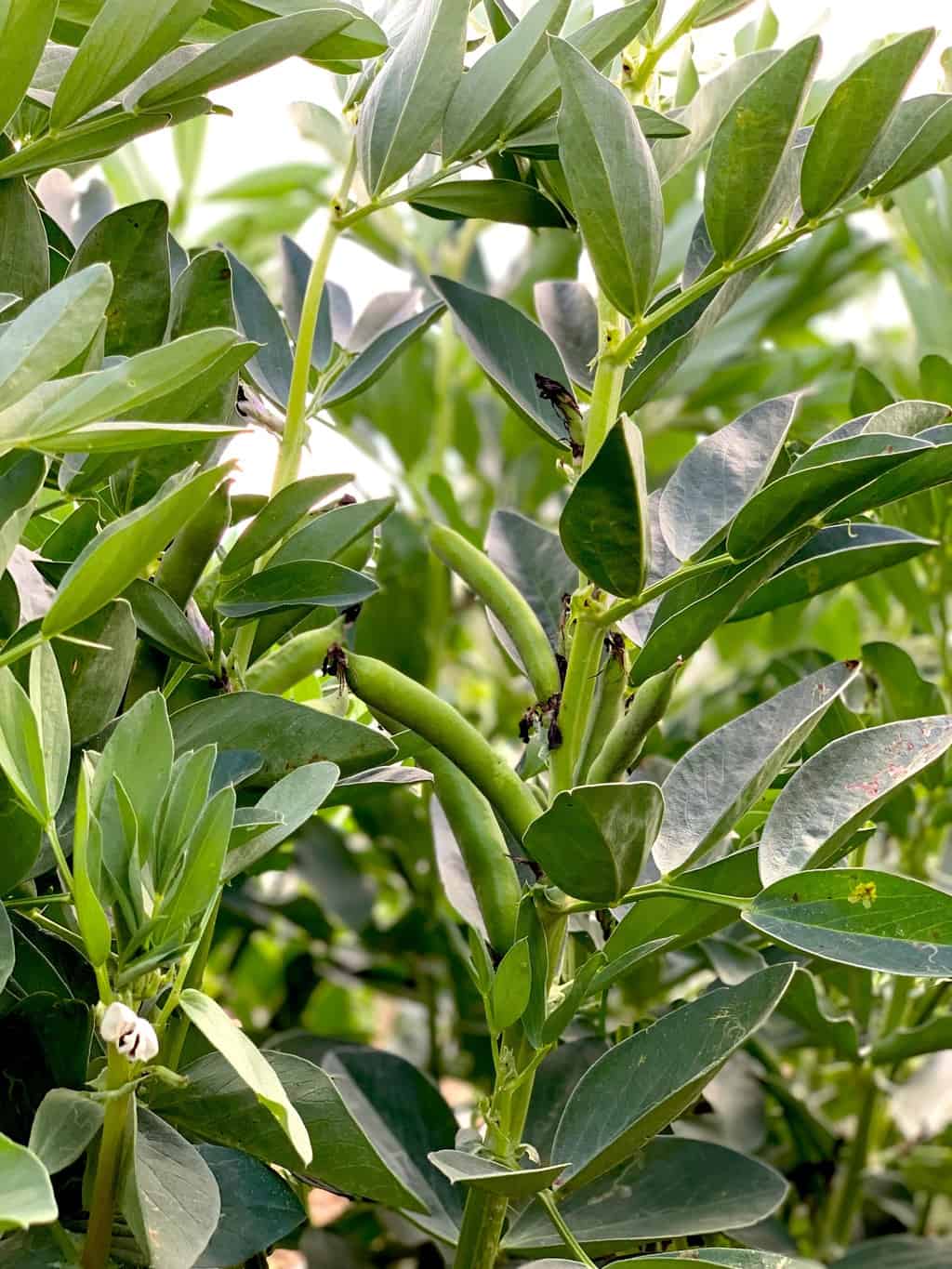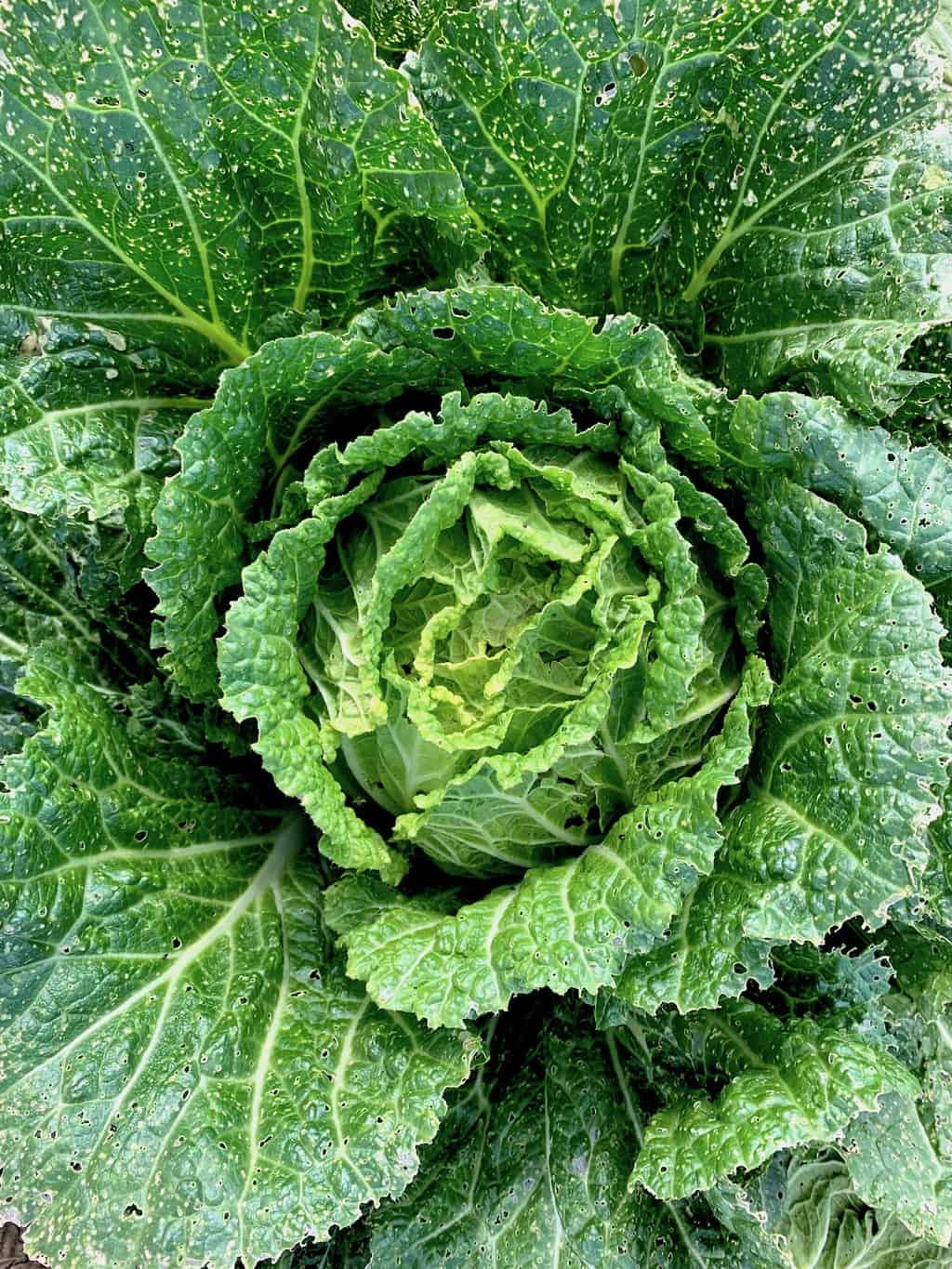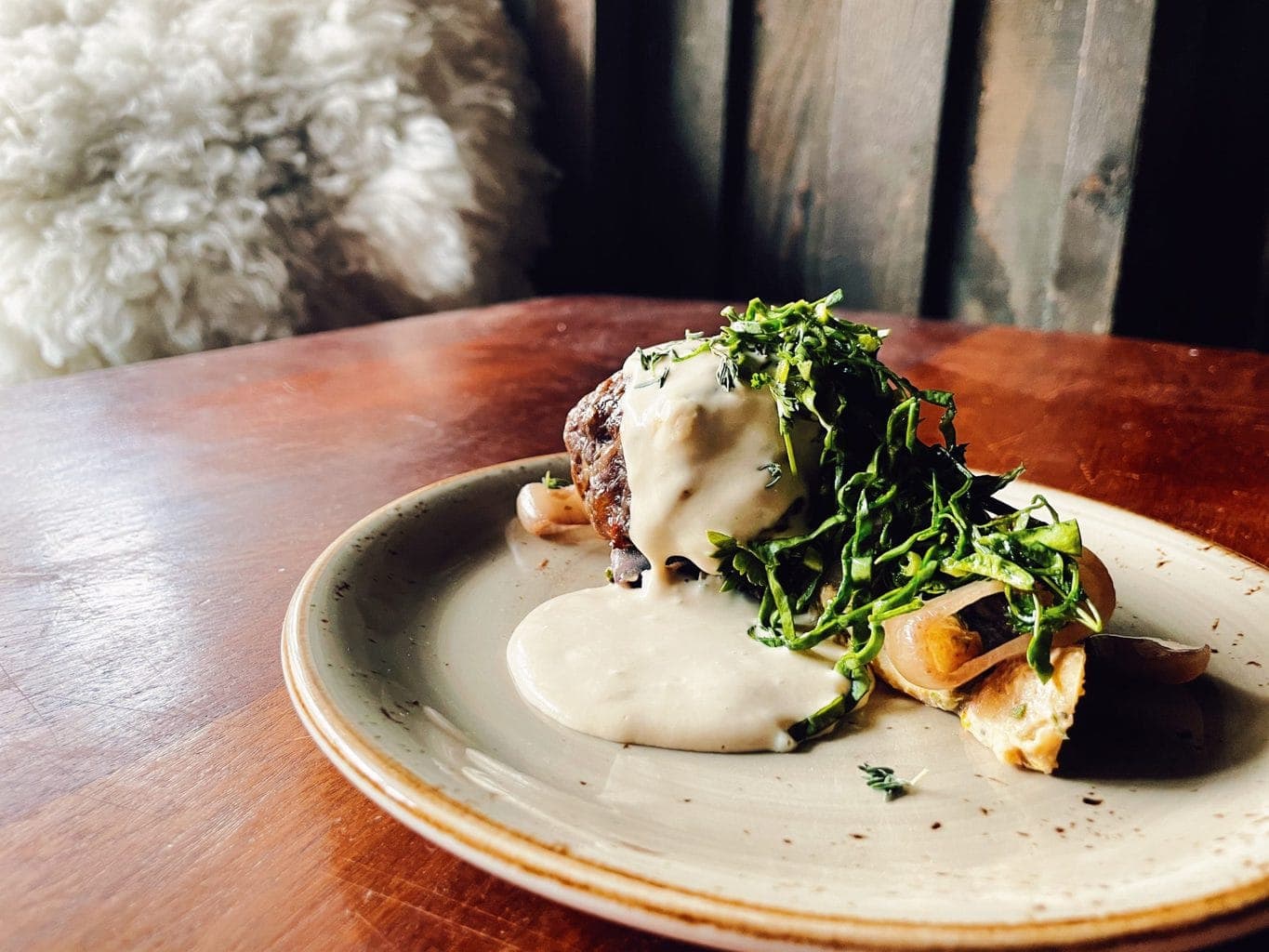
Chances are unless you are from Italy or parts of the Middle East, you did not grow up with fava beans.
Neither did we.
But we are making up for lost time. Our harvest of favas has begun, and boy do we have a lot of them planted. Look for them Saturday at the Market.
Fava beans, which are also called broad beans, are wonderful legumes, offering a wide variety of culinary options — everything from hummus to pasta to salads (and more).

Young ones are tender enough to be eaten whole — including the pods. Slathered in olive oil, blistered on a grill or in a sauté pan and showered with salt, they are seasonal treasures.
Later in the season, as they mature, favas require a little bit of work to release the beans from both the pods the husks. But the sturdy beans are worth the toil.
Favas & Other Legumes Make Nitrogen Available to Plants
One beautiful thing about the fava, as well as other legumes like peas, is what they do with soil.
Nitrogen is a chemical element that is essential for plant life, among other things. About 80 percent of the atmosphere is nitrogen.
But for plants to take advantage of nitrogen, it needs to be “fixed,” or turned into a form they can consume. Here’s where the legumes, like favas, enter the picture. They contain bacteria on their roots that withdraw nitrogen from the air and concentrate it in plant nodules. The nodules then add the nitrogen to the soil in a form that plants can use.
The need for nitrogen explains the very existence of the fertilizer industry, which supplies farmers with plant-ready nitrogen. But fertilizer is a nasty business. Relying on it turns soil into little more than a growing medium, rather than an organic, living thing.
Crop Rotation + Livestock Pasturing Enriches Soil – Not Fertilizer
We constantly rotate crops at Black Cat Farm — from season to season, nothing gets planted in the same place as the year before. Nitrogen-fixing plants like favas, clover, vetch and alfalfa are a vital part of our rotation. Instead of dumping fertilizer on our soil, we use cover crops and livestock to enrich the soil with nitrogen.
So as you savor every bite of fava bean this summer (as well as those candy-like English peas), remember their dual role in organic and biodynamic agriculture. They are the magic plants!
We look forward to seeing you at the Market stand tomorrow, as well as at the restaurants during the weekend.
Flatirons Food Film Festival Fundraiser Next Week

Calling all food & film fans! Join us at the Flatirons Food Film Festival fundraiser on Tues., July 9th in Boulder. Delicious bites from 10 top restaurants like Mercantile, Basta, and Ras Kassa’s and a pig from our farm, tiki cocktails, films, live music and dancing, and a live auction. This is also your opportunity to see a sneak peak of the 2019 Flatirons Food Film Festival films and a short documentary on legendary chef Charlie Trotter. $75. Tickets: https://tinyurl.com/FFFF19-HotParty
The Market Bounty

Saturday 10am – 2pm
Weekly Harvest – 6/29/2019
Veggies
Fava beans · Cabbage · Dill · Parsnips · Daikon radish · Pea tendrils · Fava tops · Magenta turnips · Hakurei turnips · Spring onions · Red and white radishes · Edible radish flowers · Parsley · Chives · Siberian kale · Red Russian kale · Chard · Spinach · Mixed salad greens · Butter lettuce · Red Romain · Mizuna · Radish greens · Tatsoi · Osaka purpleAsian collard greens · Arugula flowers · Ruby mizuna
Black Cat Frozen Farm-Grown Dishes
Green mole · Lamb green curry · Veggie green curry
Black Cat Charcuterie
Cotechino Modena sausage · Ken’s Italian Cajun Sausage
Black Cat Heritage-Breed Pork & Lamb Raised on Organic Pastures
All cuts of lamb · All cuts of pork · Pork skin · Pork jowls
Accessories
Sheepskins (via order form) · Tallow candle
